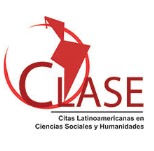STRATEGIES FOR PSYCHOLOGICAL FOLLOW-UP ON ADOPTIVE PARENTALITY: NOTES ABOUT GROUP EXPERIENCES
DOI:
https://doi.org/10.38034/nps.v29i67.549Keywords:
Adoption, Adoptive parenting, Bond, Groups, Public policyAbstract
This article aims to analyze the importance of group spaces in psychological counseling, both for applicants for adoption and for mothers and fathers after adoption. Altogether, there were three groups that met six times each, during 2019. The groups were free of cost, closed, fortnightly and took place in the evening in a psychological service of a public university in the country. As a method of analyzing group intervention, questionnaires were applied before and after the groups were conducted. The completed questionnaires were tabulated and categorized for qualitative and descriptive data analysis. The main results point to the importance of group spaces as useful places for elaborating the motivations and anxieties that characterize the adoption process. There is a sign of the need to build public policies aimed at adoptive parenting, which promote group follow-ups, both to applicants, as well as to mothers and fathers by adoption.
Downloads
Downloads
Published
How to Cite
Issue
Section
License
Autores que publicam nesta revista concordam com os seguintes termos:- Autores mantém os direitos autorais e concedem à revista o direito de primeira publicação, com o trabalho licenciado simultaneamente sob uma Licença Creative Commons Attribution após a publicação, permitindo o compartilhamento do trabalho com reconhecimento da autoria do trabalho e publicação inicial nesta revista.
- Autores têm autorização para assumir contratos adicionais separadamente, para distribuição não-exclusiva da versão do trabalho publicada nesta revista (ex.: publicar em repositório institucional ou como capítulo de livro), com reconhecimento de autoria e publicação inicial nesta revista.
- Autores têm permissão e são estimulados a publicar e distribuir seu trabalho online (ex.: em repositórios institucionais ou na sua página pessoal) a qualquer ponto antes ou durante o processo editorial, já que isso pode gerar alterações produtivas, bem como aumentar o impacto e a citação do trabalho publicado (Veja O Efeito do Acesso Livre).

















